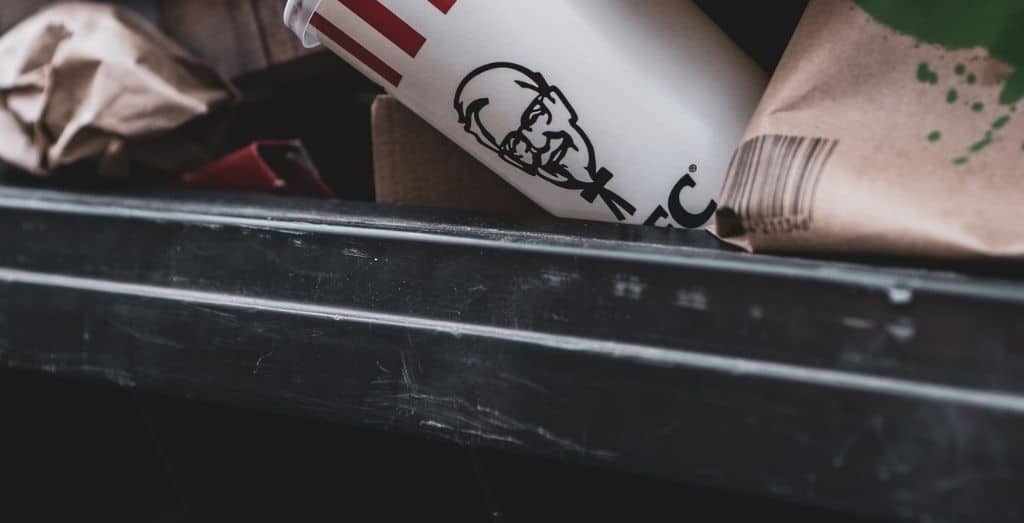While it’s a relief that you can throw most rubbish in your garbage cans, the next rubbish-related issue you’ll face is the small critters and pests infesting your containers. Although it’s a common issue that flies and other pests can swarm your waste bins, it becomes problematic once these creatures proliferate outdoors or even go indoors.
Among the common pests that could manifest in your garbage cans are flies, ants, wasps, cockroaches or even rodents. The decaying food and other organic wastes are the reason these critters invade your trash cans. Unfortunately, pests such as flies and cockroaches spread germs and diseases and rodents can chew and damage your electrical wires and drywall.
Don’t let the unsightly or nasty odour of infested garbage bins become an issue to your household, visiting friends and neighbours. You can do something about it. That said, here are the things you can follow to prevent infestation of your garbage bins.
Seek Fast, Efficient Rubbish Removal Service
The best way to avoid critters and pests infesting your garbage bins is to ensure your cans are empty after a few days or weekly. With Sydney’s scorching weather, you can expect that food wastes decay or rot rapidly― creating a pests bonanza. That’s why it’s advisable to seek fast and efficient rubbish removal service to avoid that from happening.
If it’s not possible, you can also avoid dumping food waste in your garbage bins until a night or two before the waste pick-up day. That way, your trash won’t attract any annoying pests or flies laying their eggs that turn into maggots.
Take Actions to Prevent Garbage Bins Infestation
In the event of garbage bin infestation, there are quick steps that you can execute to eliminate or prevent pests from swarming your waste containers. Here are the options you can follow:
Use Boiling Water
Once there are maggots, and other pests infesting your garbage cans, boiling water is the cheapest solution to eliminate them. Pour the boiling water to the inner sides and base of the garbage bins to get rid of all the annoying pests. The downside of using boiling water is it can only temporarily remove these small critters, and they might still come back if your bins remain untidy or containing nasty-odour rubbish.
Create Vinegar and Water Solution
The common reason your garbage bins can attract flies and other pests is food waste’s foul odour. As a natural solution, mixing one-part vinegar and three-part boiling water will not only kill the pests but also eliminate the pest-attracting odour.
Insecticide
If you want an instant way to eliminate the small maggots or insects swarming in your trash can, seek brands that contain permethrin. Insecticides containing permethrin are effective in getting rid of all the cockroaches, maggots and other pests that you never wanted to see teeming in your bins. Given that it’s a chemical, it’s important to use it with caution.
Diatomaceous Earth
As a dynamic material from fossilised phytoplankton material, diatomaceous earth can eliminate certain bugs in your garbage bins. Given that it’s nontoxic to humans, it’s also a natural option for you to create pest-proof trash cans.
Spray Ammonia
Only recommended for outdoor purposes, spraying ammonia in your trash bins is a sure way to eradicate pests. Not only can this gas ward off the raccoons but can also kill the cockroaches within minutes. In using it, mix one-part ammonia with one-part water then spray it to your garbage bins. Make sure to shut your doors and windows before spraying, as it has a pungent smell.
Regularly Clean Your Garbage Bins
The small critters manifesting in your garbage bins mostly have a short lifespan yet reproduce rapidly. When you don’t take preventive measures such as cleaning your rubbish bins, these pests will probably return after a few days or weeks. You can use hot soapy water and then scrub the nook and cranny of your trash cans― keeping all the bugs away for good.
Repair Bins’ Holes or Replace
There’s no point in cleaning your garbage bins regularly if there are holes or cracks in it. Pests and bugs will still proliferate as garbage bins offer protection, habitat and rubbish or leftovers as food for them. Either way, you can repair or replace the crack to end pests infesting your waste.
Always Secure the Lid
The simplest option of preventing garbage bins infestation is always secure its lids after dumping your household rubbish. You can properly secure the lids by tying a bungee cord to the trash bin’s handle and stretching it over the lid. By securing the trash cans’ lids, you are preventing small critters from entering and rubbish odour from attracting other pests.
In A Nutshell
Garbage bins infestation can attract small critters and pests that bring harmful diseases. On top of everything, infested trash indicates dirty bins with nasty odour― unsightly and unwelcoming to friends visiting your place or the neighbourhood. Take preventive actions before these pests can swarm your outdoors or invade your indoor spaces.
At Paul’s Rubbish Removal, we are your go-to company in collecting and hauling all your garbage bins before pests can infest it. We have 24/7 same-day rubbish removal collection to ensure that bugs and small critters won’t proliferate and swarm your garbage bins. Our expert removers can help you clean, sort and dispose of all your rubbish.
We give nothing but only hassle-free and comprehensive rubbish removal services. You don’t need to stress yourself about nasty pests infesting your trash cans. Paul’s team is only a phone call away to solve all your rubbish-related concerns.
Contact our accommodating staff at 0407 125 125 or book with us today via email.







